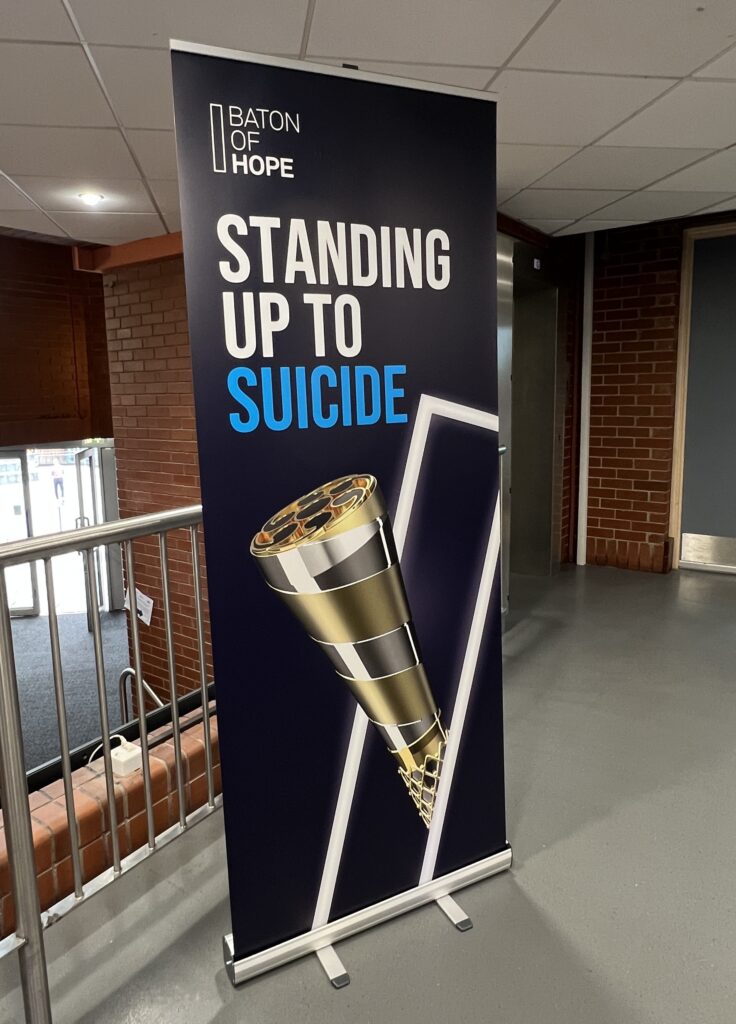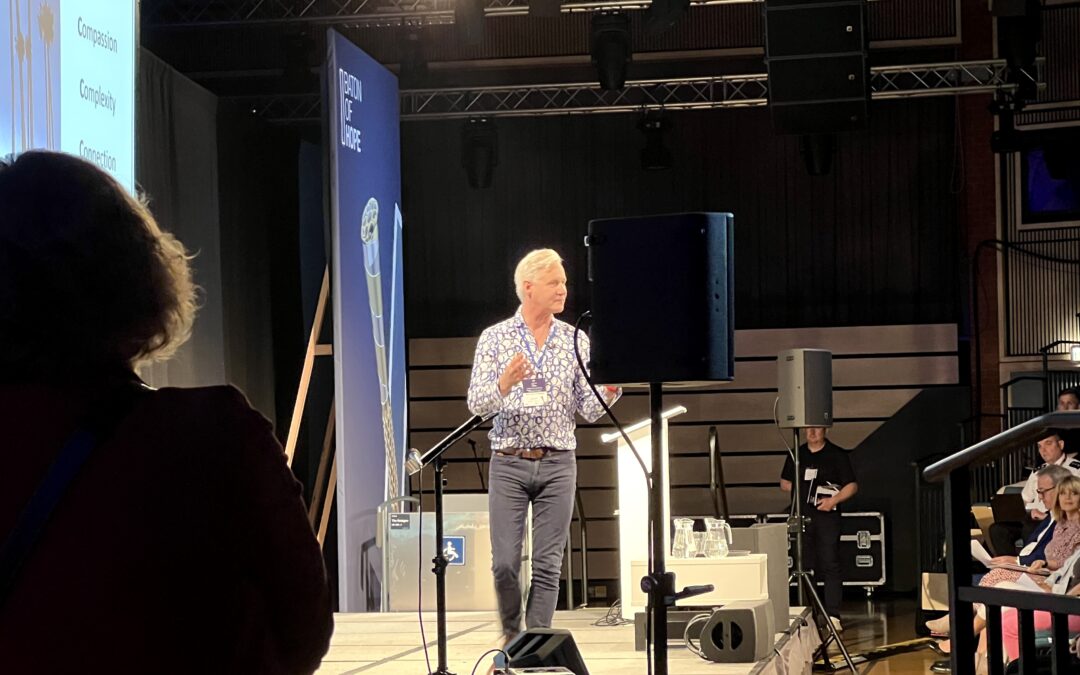National suicide prevention charity, Baton of Hope, hosted its anticipated conference today in Sheffield’s Octagon Centre, featuring talks from renowned mental health advocates from across the globe.
The charity, co-founded by Mike McCarthy, aims to raise awareness, share facts, debunk myths surrounding suicide, and develop the language and discourse surrounding it.
Mr McCarthy started the charity after losing his son Ross, 31, to suicide in 2021, and shared his aims to eliminate the phrase “committing suicide” – stating it’s outdated and connotates to when it was once illegal to take your own life.
He said: “Ross was many things, but he wasn’t a criminal.”

The full day conference hosted the likes of Prof Rory O’Connor, President of the International Association for Suicide Prevention, as well as mental health campaigner Alastair Campbell, and Shawmind & The Association for Online Gamers.
The conference proved to be a huge success, gaining both local and widespread media attention from across the UK.
According to Mr McCarthy, “6000 people in the UK take their lives every year, and it’s the biggest killer of men under 50, and women under 35”.

With suicide awareness now being so prevalent in online media, some attendees shared whether they believe that social media benefits people who struggle with mental health, or if it’s a detriment to them.
Ellie MacDonald, a suicide prevention advocate and staff member at the conference, said: “I don’t think social media helps. You have to look a certain way; you’ve got to portray your life looking amazing, and seeing other people’s lives seemingly looking great certainly doesn’t help.”
She added: “The government needs to stop penalising people who may be struggling with mental health. We don’t want to see headlines of people “admitting” to depression. You’d never “admit” to a broken leg, so why would you “admit” anxiety or depression?”
Mr McCarthy shared the same sentiment with Ellie, saying: “We don’t suggest that there’s any guilt over physical illness, so why is there guilt surrounding mental illness?”

